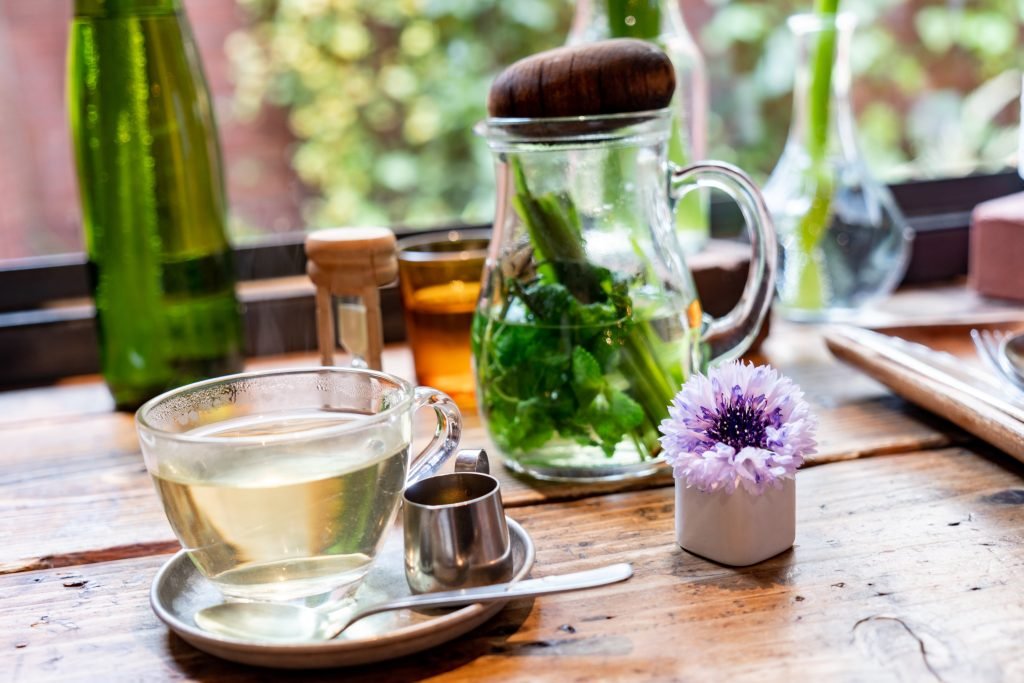Deep vein thrombosis (DVT) is a severe medical ailment marked by the formation of blood clots within deep veins, most commonly in the lower extremities. These clots pose a grave risk if they dislodge and travel to the lungs, instigating a pulmonary embolism. DVT is a significant global health concern that affects millions of individuals.
While conventional medical interventions and medications remain fundamental for DVT prevention and treatment, there is emerging research hinting at the potential benefits of tea consumption in reducing the risk of this condition.
In this article, we will investigate the relationship between tea consumption and DVT and explore different types of tea and their potential effects on this ailment.

Understanding Deep Vein Thrombosis
Before we delve into the possible role of tea in preventing DVT, it’s essential to grasp the nature of this condition. Deep vein thrombosis transpires when blood clots form within deep veins, often in the legs, though other body parts can also be affected. Several contributing factors include:
- Prolonged Immobility: Extended periods of inactivity, like those experienced during lengthy flights or bed rest, can heighten the risk of blood clot formation.
- Surgery or Trauma: Surgical procedures, especially orthopedic surgeries, and severe injuries can disrupt blood flow, increasing the likelihood of clot development.
- Medical Conditions: Certain medical conditions such as cancer, obesity, and inherited blood-clotting disorders can elevate the risk of DVT.
- Hormonal Changes: Hormonal factors, including birth control pills and hormone replacement therapy, may contribute to clot formation.
- Age and Genetics: Advanced age and a family history of DVT can also augment susceptibility.
The Role of Tea in DVT Prevention
Tea, a beverage crafted by steeping dried tea leaves or herbal ingredients in hot water, has earned renown for its potential health benefits. Its documented properties encompass antioxidants, anti-inflammatory effects, and potential cardiovascular advantages. Recently, researchers have turned their attention to the possibility that tea consumption may also play a role in reducing the risk of DVT.
- Antioxidants and Anti-Inflammatory Properties: Tea, particularly green tea, boasts high levels of antioxidants known as catechins. These compounds exhibit anti-inflammatory effects and may deter blood clot formation by diminishing inflammation within blood vessels.
- Blood Flow Enhancement: Specific tea compounds, such as theanine, have been linked to improved blood flow and reduced platelet aggregation, a central process in clot formation.
- Blood Pressure Regulation: Certain tea varieties, like hibiscus tea, may assist in maintaining healthy blood pressure levels. Elevated blood pressure can damage blood vessel walls, augmenting the risk of clot formation.
- Weight Management: Regular tea consumption, notably green tea, has shown associations with weight management, an essential factor in DVT prevention.
Types of Tea and Their Potential Effects on DVT
A diverse array of teas is savored worldwide, each harboring its unique blend of compounds and potential health benefits. Here, we explore some of the most popular teas and their conceivable effects on DVT:
- Green Tea: Green tea stands out as one of the most extensively researched teas for its health merits. Its substantial catechin content may reduce inflammation, enhance blood flow, and lower the DVT risk.
- Black Tea: Black tea contains theaflavins, antioxidants with demonstrated anti-inflammatory properties. Although not as thoroughly examined as green tea, it may still confer some protection against DVT.
- Herbal Teas: Herbal teas like hibiscus and ginger tea are caffeine-free alternatives that might contribute to DVT prevention by regulating blood pressure and reducing inflammation.
- White Tea: White tea, a less processed variety, retains many beneficial compounds found in green tea, making it a potentially valuable option for those concerned about DVT.
- Turmeric Tea: Turmeric, often included in teas, contains curcumin, a potent anti-inflammatory compound that could help diminish the risk of clot formation.

While ongoing research continues to explore the precise role of tea in preventing deep vein thrombosis, existing evidence suggests that tea, particularly green tea, may offer certain benefits that could potentially lower the DVT risk.
Nevertheless, it is crucial to underscore that tea should not be regarded as a standalone remedy or prevention strategy for DVT. Lifestyle factors such as maintaining a healthy weight, staying physically active, and managing underlying medical conditions also hold pivotal roles in DVT prevention.
Before embarking on significant dietary or lifestyle changes, particularly if you have preexisting medical conditions or are taking medications, it is imperative to consult with a healthcare professional. They can provide tailored guidance on how tea consumption may align with your comprehensive plan for reducing the risk of deep vein thrombosis and maintaining overall health.
MEDICAL DISCLAIMER
Hummingbirdtearoom.com cannot and does not contain medical/health advice. The medical/health information is provided for general and educational purposes only and is not a substitute for professional advice.


